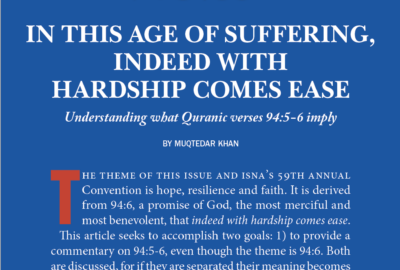Time to turn around worrisome trends in Pakistan
Once again the viciousness that haunts Muslim communities has manifested itself in the form of a brutal assassination of the Pakistani Provincial Governor Salman Taseer last week.
The assassin, Taseer’s bodyguard, claimed that he killed Taseer because the governor was opposed to Pakistan’s blasphemy law. The assassination of Taseer will surely silence many moderate voices and further intimidate the government.
The latest crisis began when a Christian Pakistani woman, Aasia Noreen, was accused of blasphemy, with witnesses claiming she insulted the Prophet Muhammad.
A court in Pakistan, invoking the nation’s blasphemy law, sentenced Noreen to death. Taseer, who was publicly seeking a pardon for Noreen, came under threat from some religious leaders for doing so and for standing up for other minorities like the Ahmadis, a Muslim denomination which is often persecuted for its unorthodox beliefs.
Last week thousands of people, instigated by religious parties and imams, took to the streets to demand that Noreen be executed. And though human rights activists and many Muslim scholars have come out and condemned this development, the government is afraid to pardon her and repeal the law, especially after the killing of Taseer last week.
Two issues are once again highlighted by this episode.
First is the issue of capital punishment for crimes of speech and thought labelled as blasphemy, a punishment that runs counter to the Islamic ideals of compassion and mercy. In many cases, the blasphemy law is misused by Muslims to exact revenge against religious minorities and other fellow Muslims by falsely accusing them of blasphemy.
The frequency and blatancy with which these laws are abused are justification enough for their repeal.
These laws, though created in the name of Islam, really have no place in Islam and hardly any Muslim-majority country applies them. Pakistan is a rare exception. Religious clerics often use it to gain quick fame and popularity amongst their followers at the expense of defenceless people like Noreen.
The second issue is the increasingly worrisome trend in some Muslim communities of labelling as inauthentic any hadith (actions or sayings of the Prophet Muhammad) in which tolerance, compassion or mercy is shown, while those few in which murder and violence is advocated, albeit in a specific context, are the only ones considered authentic.
Some Muslims even react with disbelief and immediately demand the source when any story about the Prophet Muhammad’s compassion is mentioned. It seems for some of us, compassion and mercy have become un-Islamic virtues.
For example, according to a very popular hadith, a non-Muslim woman used to throw garbage on the Prophet Muhammad whenever he passed by her house. Neither he – nor any of his companions – took any action against her. One day, when she did not appear as usual to throw garbage at the Prophet, he went to her home and asked after her.
Throughout his life, the Prophet Muhammad was insulted by his enemies, but never did he order them killed to avenge every insult. Indeed, the Qur’an even tells of such instances and does not call for the death of those aggressors.
Stories such as the above, that emphasise Prophet Muhammad’s compassion and mercy, are part of Muslim folklore, music, children’s stories and kitchen table conversations.
The most important and oft-emphasised attribute of God in the Qur’an is rahmah, or mercy, and given the uncertainty surrounding the authenticity of many hadiths, I hope that Muslims become more responsive and open to those that advocate mercy, compassion and tolerance, and critical of those that encourage violence, murder and hate. After all, tolerance and compassion can have no disastrous consequences; it is hate and violence that often trigger unending cycles of the same.
The Qur’an says that God sent Muhammad as a mercy to all of humanity. How can we convince Aasia Noreen in Pakistan that this is indeed true?
Article available in: French, Indonesian, Arabic, Urdu, Hebrew








